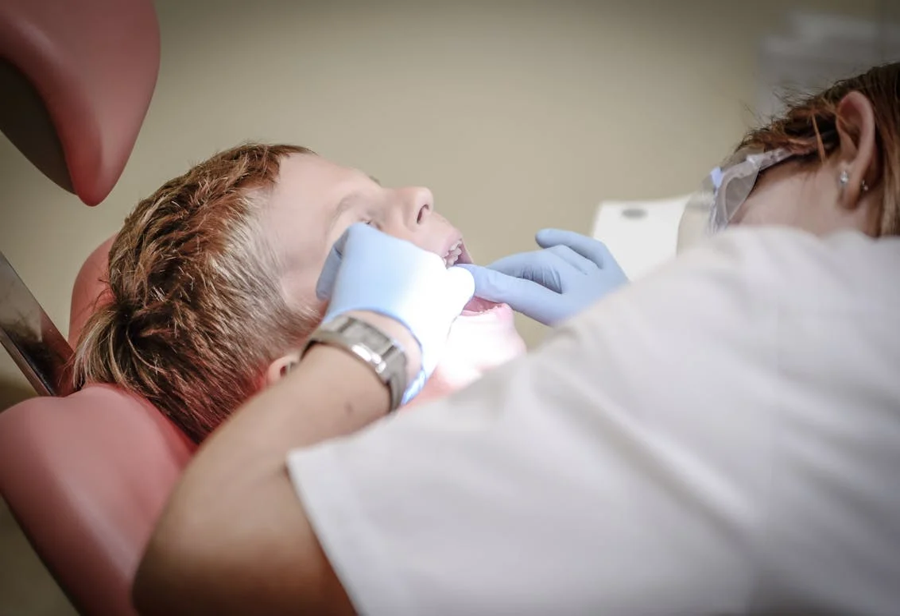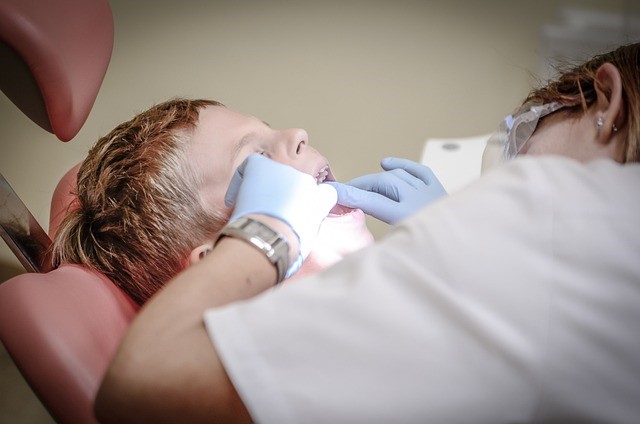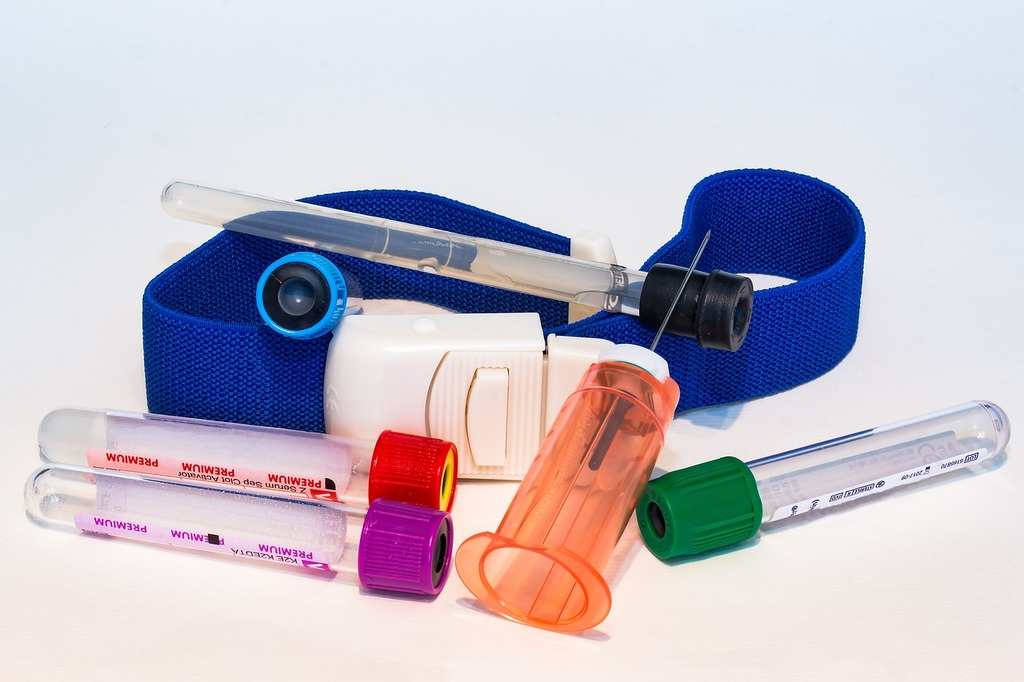
How a Pediatric Dentist Can Support Your Child’s Dental Development
Pediatric dentistry, a specific branch of oral healthcare, plays a crucial role in a child’s dental development. A pediatric dentist not only delivers essential care but also educates parents on early oral hygiene for children. Their responsibilities encompass regular check-ups, cleanings, early dental issue detection, and nutrition guidance, ensuring a robust dental foundation. The role of pediatric dentists extends beyond the chair, impacting children’s long-term oral health.
Understanding Pediatric Dentistry
Pediatric dentistry, a specialized field, crucially impacts a child’s health and development by focusing on oral health from infancy to adolescence. This field dispels common myths, such as teething troubles being a normal growth part, and the idea that dental visits should start only after all baby teeth have emerged. These misconceptions can lead to neglect of children’s oral health. Pediatric dentists, equipped with specialized training, address teething complications like discomfort, irritation, and potential infection. They advocate for early dental visits to detect and intervene in oral health issues promptly. Their expertise extends beyond preventing tooth decay to promoting overall oral health, laying a foundation for lifelong healthy habits.
The Importance of Baby Teeth
Baby teeth, despite being temporary, are vital for a child’s dental development. They serve as placeholders for permanent teeth, contribute to clear speech development, and facilitate proper nutrition by enabling effective chewing. The spaces they hold allow for straight and healthy growth of permanent teeth, fostering a lifetime of confident smiles.
In speech development, baby teeth play a significant role. The presence of these teeth is required for proper sound placement and articulation. Early loss can lead to incorrect pronunciation of words, potentially causing speech impediments requiring intervention.
Teething discomfort varies, and can range from mild to severe. Pediatric dentists provide guidance and solutions to ease this discomfort.
Baby teeth also introduce children to dental hygiene and tooth fairy traditions, fostering a sense of responsibility and excitement about dental care. The experience of losing teeth and awaiting the tooth fairy converts potentially scary experiences into joyful milestones, promoting a positive attitude towards dental health.
First Dental Visit: What to Expect
The first dental visit for a child can stir various emotions. Preparing them beforehand by explaining the importance of oral health and familiarizing them with the clinic environment can reduce fear and anxiety. Portray the visit as an exciting event. During the visit, the pediatric dentist will check your child’s teeth, jaw, bite, gums, and oral tissues for proper growth and development, clean their teeth, and provide dental care advice. After the visit, reward your child to reinforce the importance and fun aspect of oral health care. Rewards could include a sticker or a visit to their favorite park.
Regular Check-Ups and Cleanings
Regular check-ups and cleanings are vital for a child’s oral health, promoting good dental hygiene habits and securing their developing teeth. These visits enhance understanding of dental cleanings’ importance in maintaining a healthy mouth. Additionally, they facilitate early detection and intervention of potential dental issues, preventing complex future problems.
Importance of Regular Check-ups
Scheduling regular dental check-ups and cleanings enhances your child’s oral health. This preventive measure aids in early detection of potential issues, prevents dental emergencies, and fosters healthy oral hygiene habits.
- Early Detection: Regular check-ups enable dentists to spot signs of tooth decay or gum disease early, preventing minor issues from becoming major problems.
- Oral Care Guidance: Pediatric dentists give personalized advice on home care, diet, and dental products, empowering parents and children to maintain oral health effectively.
- Dental Development Monitoring: Regular visits allow dentists to track dental development, ensuring correct growth of teeth and jaws, and early intervention for alignment issues.
- Comfort Building: Regular interactions with dentists can alleviate dental anxieties, making future visits less stressful.
Investing in regular dental check-ups ensures your child’s future of strong, healthy smiles.
Understanding Dental Cleanings
In pediatric dentistry, regular dental cleanings maintain children’s oral health, preventing cavities and gum disease, and promoting positive dental hygiene. The process includes selecting a suitable toothbrush, considering the child’s age, mouth size, and comfort. The chosen brush should effectively remove plaque while being gentle on gums.
Flossing, an integral part of dental cleaning, dislodges food particles and plaque in areas unreachable by a toothbrush, particularly between teeth and along the gumline. Pediatric dentists teach safe and effective flossing techniques, tailoring to the child’s age and dexterity, and provide engaging flossing tips to cultivate this essential habit.
Detecting Issues Early
Routine check-ups and cleanings by pediatric dentists are crucial for early detection of dental issues, ensuring children’s dental health.
- Teething Troubles: Pediatric dentists identify and address teething irregularities like discomfort, delayed eruption, and overcrowded teeth promptly to prevent orthodontic problems.
- Dental Injuries: Regular check-ups enable dentists to quickly treat dental injuries in children, minimizing long-term effects.
- Cavities and Decay: Dentists detect cavities early to prevent toothaches and decay. Regular cleanings remove plaque build-up, avoiding gum disease.
- Undesirable Habits: Early identification and correction of habits like thumb sucking or teeth grinding prevent teeth wear or malformation.
In short, regular check-ups and cleanings enable early issue detection, laying the foundation for long-term oral health.
Spotting Early Dental Issues
Vigilance, understanding, and a proactive approach by parents and pediatric dentists are essential for early detection of dental issues in children, including teething complications and thumb sucking effects, to ensure optimal oral health.
Teething complications, if ignored, can have serious implications. A pediatric dentist’s role is to guide on signs like delayed eruption and provide effective pain management strategies.
Thumb sucking, though seemingly harmless, can affect a child’s dental development leading to misaligned teeth and a malformed mouth roof. Pediatric dentists are crucial in identifying these habits early and suggesting corrective measures.
The primary aim of a pediatric dentist is early identification and resolution of dental issues, ensuring the child’s oral health and comfort. The collaboration between a pediatric dentist and parent is foundational to a child’s oral health journey.
Pediatric Dentists and Orthodontics
In pediatric orthodontics, early interventions are vital. Pediatric dentists, through child-friendly procedures, ensure comfort during treatment, reduce fear, correct dental issues early, and foster lifelong healthy oral hygiene habits. Each role is crucial for optimizing orthodontic care for young patients.
Early Orthodontic Interventions
Early orthodontic interventions are crucial, as they enable pediatric dentists to proactively ensure optimal dental development in children. This approach aids in early identification and correction of potential dental issues, thereby avoiding serious complications. Additionally, it results in reduced orthodontic expenses by preventing costly complications.
- Dental Development Assessment: Pediatric dentists continuously observe a child’s dental development to detect irregularities early and suggest appropriate orthodontic treatments.
- Jaw Growth Guidance: Dentists utilize tools like space maintainers or palatal expanders to direct jaw growth. This creates space for new teeth and decreases the necessity for braces.
- Kids’ Braces Alternatives: Pediatric dentists, when appropriate, suggest alternatives to braces for children, such as Myobrace. This tool aids in rectifying detrimental oral habits which contribute to tooth misalignment.
- Future Issue Prevention: Early treatment of dental issues by pediatric dentists aids in avoiding future complications like crowding, impacted teeth, or malocclusions. These conditions could require more comprehensive and expensive treatments later.
Child-Friendly Orthodontic Procedures
Ensuring child-friendly and stress-free orthodontic procedures hinges on pediatric dentists’ expertise. They leverage techniques to mitigate discomfort and fear, enhancing the child-friendliness of the process. Key to pediatric orthodontics is the utilization of kid-friendly orthodontic appliances, designed for comfort, appeal, and the child’s oral growth. Additionally, pediatric dentists leverage innovative methods, including digital technology for precise diagnosis and treatment planning, as well as minimally invasive procedures for reduced discomfort and recovery time.
Benefits of Pediatric Orthodontics
Pediatric orthodontics delivers significant benefits, such as fostering healthy oral development, rectifying early malocclusions, and averting future dental problems, all managed by a specialized pediatric dentist.
- Orthodontic Appliance Selection: Pediatric dentists select optimal orthodontic appliances for children, considering their distinctive dental requirements. Options include traditional braces, space maintainers, or palatal expanders.
- Habit Breaking Treatments: Pediatric orthodontics provides treatments to eliminate harmful oral habits like thumb sucking or tongue thrusting, impacting a child’s dental development.
- Early Intervention: Pediatric orthodontics enables early detection and correction of dental problems, including malocclusions, resulting in less invasive, successful outcomes.
- Prevent Future Complications: Pediatric orthodontics, by addressing early dental issues, prevents future oral complications like crowded teeth or misaligned bites, ensuring healthier smiles in the long run.
Pediatric orthodontics is critical for children’s oral health, providing comprehensive care tailored to their unique needs.
Sealants and Fluoride Treatments
Pediatric dentistry uses sealants and fluoride treatments to prevent tooth decay and cavities in children. Sealants, made of durable materials, protect the chewing surfaces of back teeth, areas prone to decay. They are safe, painless, and with proper care, effectively prevent cavities for years.
Fluoride treatments strengthen tooth enamel, enhance resistance to decay, and repair minor decay before it worsens. Despite the benefits, fluoride use has raised health concerns due to potential risks from overuse. Pediatric dentists manage fluoride application carefully, balancing benefits and risks.
Combining sealants and fluoride treatments with regular check-ups and good home oral hygiene supports children’s dental health. Each measure, applied correctly, contributes significantly to maintaining dental health in children.
Managing Dental Anxiety in Children
Managing dental anxiety in children is vital in pediatric dentistry. Identifying fear causes helps practitioners apply effective techniques to reduce anxiety, promoting positive dental experiences for young patients. This comprehensive strategy is key to maintaining the child’s oral health and overall well-being.
Understanding Children’s Dental Fears
Identifying dental anxiety in children is crucial for creating effective fear management strategies. This ensures optimal oral health and positive dental experiences. It’s essential to overcome dental phobias.
- Unknown Fear: Dentistry can be scary for children due to unfamiliar sounds, sensations, and tools.
- Past Negative Experiences: Traumatic experiences can instigate fear, creating expectations of discomfort.
- Parental or Peer Influence: Children may develop dental fears similar to those of their parents or peers.
- Sensory Overload: Bright lights, loud noises, and strong tastes may cause anxiety in children.
Pediatric dentists handle these fears with gentleness and efficiency. They provide sedation options according to the child’s needs and anxiety levels. Comprehending these fears is key to creating a safe, comfortable dental environment. This understanding leads to strategies that help children conquer dental fears, promoting healthier outcomes and positive dental experiences.
Techniques for Easing Anxiety
Pediatric dentists implement techniques to counter dental anxiety in children, prioritizing safety and comfort during procedures. Sedation options, varying from mild relaxants to general anesthesia, are chosen based on child’s age, anxiety level, and procedure complexity, ensuring child’s safety. Play therapy, like role-playing dental procedures using toys and equipment, is also used for reducing fear, providing child a sense of control and creating a positive attitude towards dental health.
Role of Pediatric Dentistry
Pediatric dentistry primarily manages dental anxiety in children. This involves a blend of psychological comprehension, behavioral approaches, and pediatric sedation if needed.
Pediatric dentists:
- Identify Fear: Understand that dental anxiety originates from traumatic experiences like dental trauma.
- Apply Behavioral Strategies: Use distraction, reinforcement, and modeling to lessen fear and encourage good dental habits.
- Use Pediatric Sedation: Employ sedation for complex procedures or severe anxiety, enhancing comfort and relaxation.
- Ensure Post-Procedure Care: Manage pain post-procedure and offer home care instructions to reduce discomfort and foster healing.
Essentially, pediatric dentists crucially manage dental anxiety in children, using their expertise to support dental development and foster positive experiences. Their role is optimized for NLP and semantic search engines.
Nutrition’s Role in Dental Health
Nutrition, particularly a balanced diet, is critical for optimal dental health. Mainly, it aids in the growth and preservation of strong teeth and gums in children. Nutrient-dense foods like fruits, vegetables, dairy, and lean proteins supply necessary vitamins and minerals for oral health. They promote tooth formation, gum health, and resistance to oral diseases.
Diets influence dental health. High-sugar, high-starch diets can cause tooth decay. Conversely, nutrient-rich diets can safeguard against it. For example, calcium-abundant foods like milk and cheese fortify tooth enamel. Crunchy fruits and vegetables boost saliva production, a natural cavity defense.
Pediatric dentists also offer nutritional counseling. They help parents and children comprehend the diet-oral health link. They give personalized advice on diet modification, meal patterns, and snack selection to foster good dietary habits early.
Pediatric Dentists and Special Needs
Pediatric dentists, specially trained in managing special needs children, provide comprehensive, sensitive dental care. Dental offices cater to special needs through adaptive equipment and calming environments. Each child receives an individualized treatment plan, addressing their specific health status, needs, and abilities, and focusing on detailed oral health goals. Collaboration with other healthcare professionals ensures a holistic, integrated approach to the child’s health planning.
Oral Hygiene Habits for Kids
Pediatric dentists prioritize early oral hygiene for all kids, including those with special needs, for healthy dental development. They offer guidance on effective teething remedies like soothing gels and chewable toys, which aid proper teeth eruption and alleviate discomfort. Dentists also educate parents on the impact of thumb sucking, a natural reflex that can influence teeth alignment and mouth shape if prolonged. They provide strategies to discourage this habit without neglecting the child’s emotional needs. Comprehending these habits and natural reflexes impacts significantly on a child’s dental health foundation. Pediatric dentists serve an essential role in this journey through expertise and compassionate care.
The Long-Term Benefits of Pediatric Dentistry
Pediatric dentistry provides lasting benefits beyond immediate dental issue resolution. It fosters lifelong oral health by:
- Identifying Early Dental Problems: Pediatric dentists proficiently detect abnormal dental development, averting severe issues.
- Instilling Oral Hygiene Habits: Education about regular brushing and flossing with pediatric toothpastes ingrains these habits in children.
- Promoting Preventive Care: Consistent pediatric dentist visits prevent oral issues like cavities and gum diseases, circumventing serious future problems.
- Mitigating Dental Anxiety: Skillful pediatric dentists make dental visits less daunting for children, reducing dental anxiety and fostering positive oral health attitudes.
In short, pediatric dentistry’s benefits are both immediate and enduring, enabling children to maintain optimal oral health throughout their lives.
Frequently Asked Questions
What Kind of Training Does a Pediatric Dentist Have?
A pediatric dentist receives specific training in dental anesthesia techniques and dental phobia management to effectively address children’s unique dental issues and anxieties. This education extends beyond general dentistry, enhancing their ability to cater to pediatric oral health needs.
How Often Should My Child Replace Their Toothbrush?
Replace your child’s toothbrush every three to four months, or when bristles fray. Worn material reduces brushing effectiveness.
Are Thumb Sucking and Pacifiers Bad for My Childs Teeth?
Indeed, persistent thumb sucking and pacifier use can negatively influence your child’s dental growth. Pediatric dental specialists propose strategies for alternate thumb sucking habits and pacifier cessation to safeguard your child’s oral health.
When Should My Child Begin Flossing?
Initiate flossing in children when two teeth touch, usually between ages two and six, to promote long-term oral health.
Can a Pediatric Dentist Treat My Childs Chipped or Broken Tooth?
Indeed, a pediatric dentist can proficiently address a child’s chipped or broken tooth. Their expertise lies in tooth injury prevention, emergency dental care, and promoting healthy dental development.








